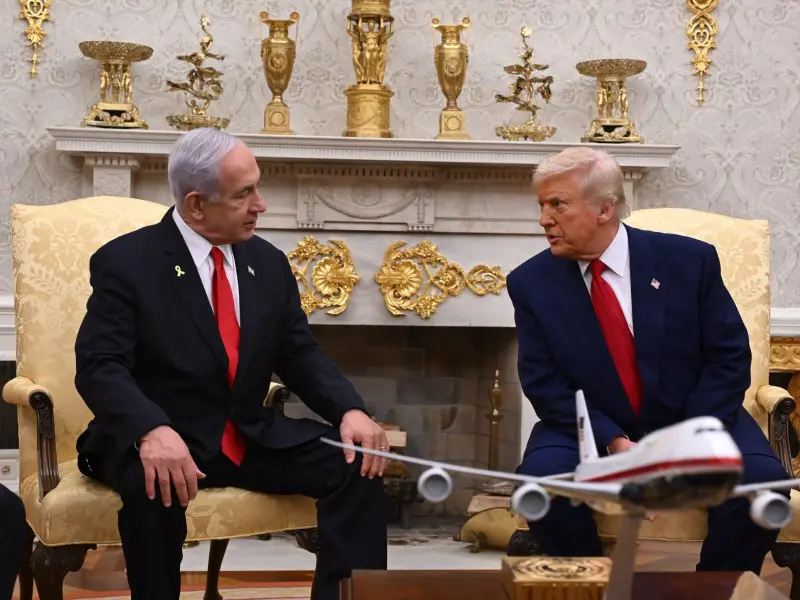Former Israeli Prime Minister Naftali Bennett has called for a shift in Israel’s response strategy to Iranian proxy attacks. “When the Houthis, Iran’s terrorist arm, fire on Israel, Israel needs to respond to Tehran,” Bennett stated, emphasizing the undeniable truth: the Houthis are not independent actors but direct extensions of Iran’s Islamic Revolutionary Guard Corps (IRGC).
Bennett’s remarks underscore a growing consensus among Israeli defense leaders—one that has been brewing since October 7, 2023, when Iran’s vast terror network, led by Hamas in Gaza and supported by Hezbollah, Islamic Jihad, and the Houthis, launched a coordinated war on Israel. As the Houthis continue their missile and drone assaults on Israeli cities—most recently targeting up to 7.7 million civilians with long-range ballistic weapons—the time has come to shift from tactical responses to strategic retaliation.
The Houthis
The Houthis, or Ansar Allah, have fired 23 ballistic missiles at Israeli civilian areas since late 2023. But these attacks are not just Yemen’s war—they are Iran’s war. The IRGC funds, arms, trains, and directs Houthi operations from Tehran. “Iran has a lot to lose; the Houthis have much less,” Bennett noted, highlighting the asymmetry of deterrence. The Houthis are expendable pawns, but Iran is the puppeteer pulling the strings.
This distinction matters. Every missile launched by the Houthis is not merely an act of aggression from a rebel group—it is an act of war orchestrated by a sovereign regime. And yet, the international community continues to apply pressure on Israel while ignoring the true culprit: the Islamic Republic of Iran.
Iran’s Regional War on Israel
Bennett’s remarks follow a string of Iranian escalations, including the unprecedented direct missile strikes on Israel on April 13, 2024, and October 1, 2024, in which Iran launched hundreds of ballistic and cruise missiles at every Israeli city. These attacks were the largest of their kind in history, and yet the United Nations failed to condemn them—proving once again its moral bankruptcy.
In response, Israel launched Operation Days of Repentance, obliterating Iran’s air defenses and striking nuclear weapons research sites with surgical precision. Yet the attacks from Iran’s proxies have continued. Hezbollah, Iranian-backed militias in Syria and Iraq, and the Houthis have kept up a relentless campaign of terror.
The Case for Hitting Tehran
Bennett’s strategy is simple but revolutionary: shift the cost of war directly to the source. Striking Houthi launch sites in Yemen may temporarily suppress attacks, but it does not eliminate the threat. The IRGC will simply rearm and regroup them. However, if Tehran begins to feel the consequences—economically, militarily, and diplomatically—it may think twice before unleashing its proxies.
Israel’s right to self-defense includes the right to dismantle the infrastructure of terror at its source. Iran has declared war not only on Israel, but on global stability. Its proxy war stretches across seven active fronts and threatens shipping lanes, energy markets, and civilian life across the Middle East. The world cannot afford to let Tehran operate with impunity.



